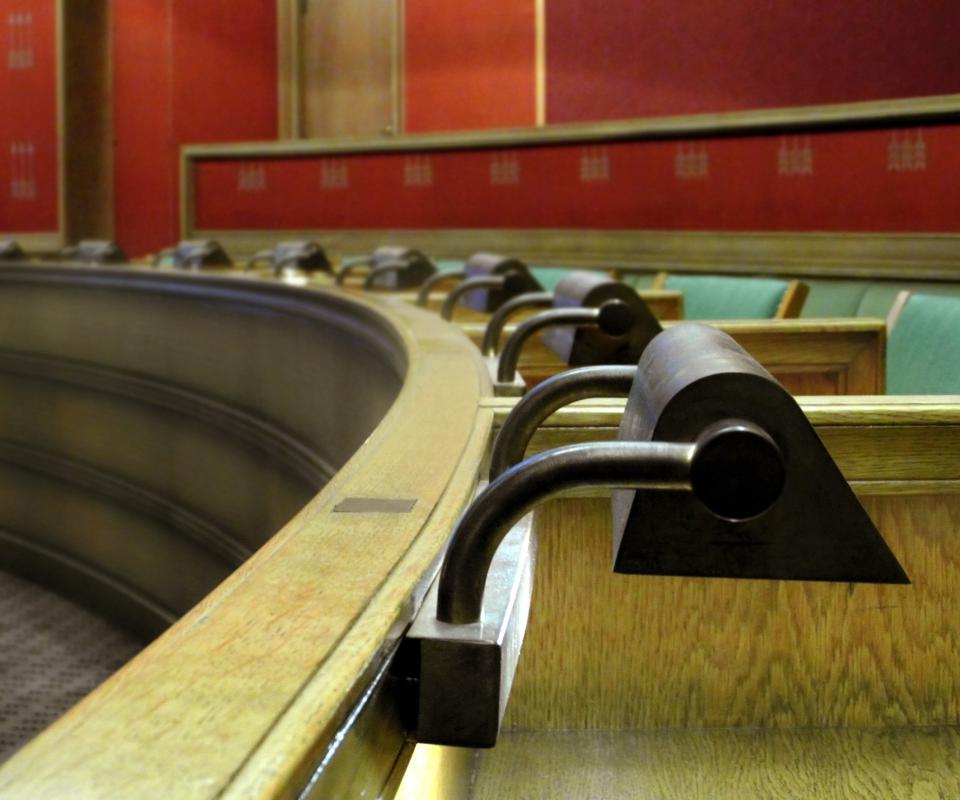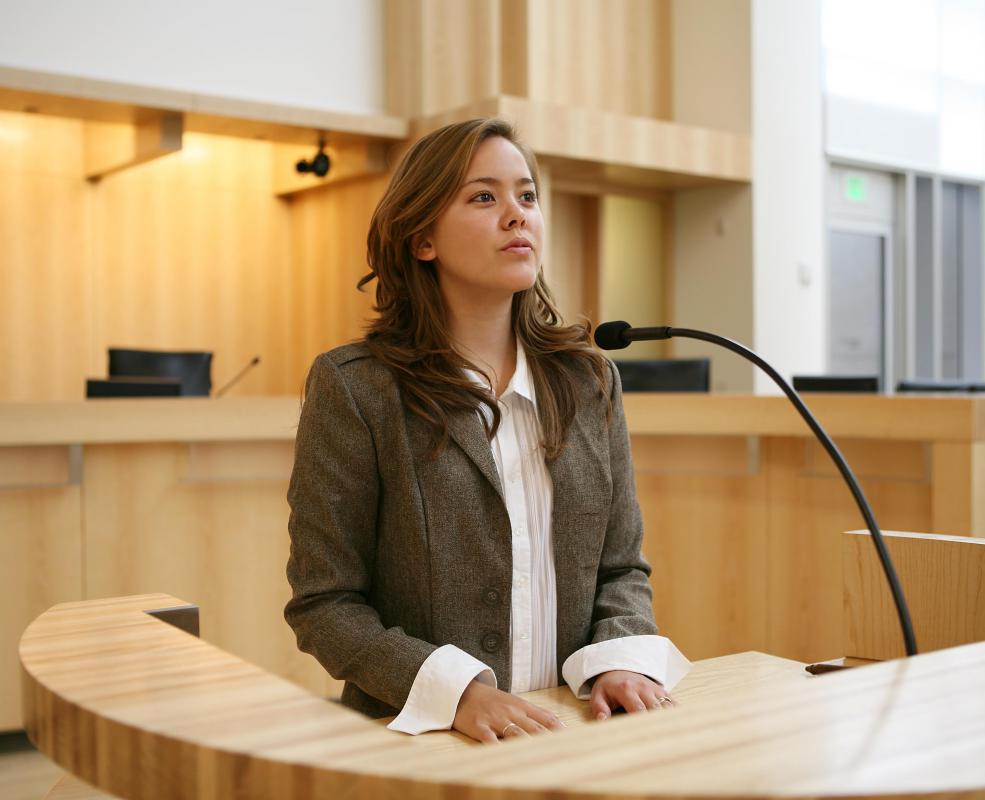At WiseGEEK, we're committed to delivering accurate, trustworthy information. Our expert-authored content is rigorously fact-checked and sourced from credible authorities. Discover how we uphold the highest standards in providing you with reliable knowledge.
What is Grand Jury Testimony?
In the American justice system, prosecutors who charge an individual with a serious crime must convince what is known as a grand jury that they have enough probable cause to warrant an indictment and criminal trial. This is generally accomplished through the presentation of evidence and grand jury testimony. Grand jury testimony is not given under oath, and witnesses who provide it are not subject to perjury, unless they lie under oath later at criminal trial.
Grand jury hearings are intended to be part of a system of checks and balances that ensure fair treatment of the accused. Jury membership is taken from the same pool of people who serve on a petit jury, which is used later if a criminal trial is deemed necessary. Grand juries are not subjected to the process of jury screening and testimony not is offered in front of a judge, though one is usually available to ensure proper procedures are maintained. A judge in a grand jury hearing is not involved in the decision of whether or not to indict.

Historically, grand juries were a feature of common law systems in many countries, however the United States is virtually the only country where they are still employed. Countries such as Australia and those in the United Kingdom have gone on to adopt a committal procedure system, in which preliminary hearings take the place of grand juries. Preliminary hearings differ in that a judge, and not a jury, decides whether a criminal trial is warranted. In the U.S., in addition to federal crimes, roughly half of the 50 states require grand jury testimony for criminal violations of state law.

A defendant is generally not present at a grand jury hearing, and there are no counter-arguments offered by the defense. Grand jury testimony is solely provided to further the prosecution. In addition, the defense has no recourse to address prosecution witnesses who lie or present illegal evidence until trial. In this way, the grand jury process has been the subject of criticism, as the jury is only privy to one side of the story.

Witnesses called on to offer testimony can be subject to subpoena, meaning they can be held in contempt of court if they do not appear and testify. Often, a witness who has compelling evidence is offered legal immunity in exchange for his cooperation. Immunity is a valuable tool for prosecutors as it allows them to persuade witnesses, who may be also be subject to criminal charges, to testify against others.
AS FEATURED ON:
AS FEATURED ON:














Discussion Comments
@Mammmood- I think that the reason a trade like you mention is seen as acceptable is because often, the risk of both the smaller criminal and the bigger one getting off in an ordinary trial's jury verdict is high enough that an exchange is worth it. If you can at least ensure that one gets convicted, especially the person seen as the worse criminal, I suppose that's better justice than everyone going free.
@NathanG - The whole immunity thing is a racket in my opinion. I see this played out in a lot of crime shows on television.
Some evil drug lord gets offered immunity if he will rat out some bigger drug or mafia boss. I understand that from the prosecution’s standpoint, it makes for a fair trade.
Their thinking is that they would rather catch the big fish, and are willing to let the smaller ones get clemency. Still, it’s not really right in my opinion. If you’ve done wrong, you’ve done wrong, and you should do the time in my opinion.
@Charred - I like the committal procedure practiced in some other countries rather than our system of jurors taken from the common populace.
In a grand jury federal judges should be the ones who make the determination about whether there is a need for a criminal trial. I say this because judges are better trained.
At the risk of sounding like I am insulting my fellow peers, I feel that too often “regular folk” (myself included) are too easily swayed by emotions and other tactics that prosecutors may use in delivering their grand jury evidence.
@MrMoody - It’s not given under oath, so I guess nothing would happen. I assume that their facts would be debunked by the defense and this would be used to undermine the case provided by the prosecution.
I do agree with you however that it should be given under oath. Why it’s not is not made clear. Perhaps the idea is that some people would be afraid to give all the details in their testimony, if they were forced to do it under oath.
This is not to suggest that these people would necessarily be lying, but only that the pressure of delivering testimony under oath might cause them to fear messing up some key details, and therefore they would end up simply not saying anything. That’s my take; it’s only speculation.
It’s surprising to hear that grand jury testimony evidence is not subject to the restrictions against perjury. I think that restriction should hold true in all phases of the trial process, not just the actual trial itself.
Witnesses could lie to the grand jury in order to bolster the case of the prosecution, and they could do this without recourse. Does this mean that lying to a grand jury during a testimony time is not, in itself, a crime, or it's one that is not subject to perjury constraints?
So what punishments do the witnesses get if it’s shown that they lied to the grand jury – a slap on the wrist?
Post your comments